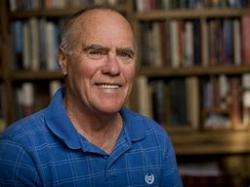Our culture is so starved for heroes or heroines that we elevate the mediocre to undeserved heights.
Much controversy has taken place recently concerning the placement of Confederate statues. Some citizens argue that opponents of the statues wish to re-write history and destroy legacy and tradition. Others see statues as symbols that celebrate slavery.
It’s a fierce and interesting debate to observe.
And while I was not present when statues were erected, I have witnessed another type of legacy or myth built in a school where I worked for twenty years–and what I observed isn’t unique. Many institutions have revered figures.
Before arriving as teacher-coach at an all-boys independent school in the Washington, DC suburbs, I was already puzzled that another school–the best football team in a well-known athletic league–was “not eligible for the team championship.” Each year the team finished with a winning season and had a highly competitive schedule against other similarly powerful DC teams.
No league games meant no league standing for one of the best football teams in the area. They were determined to be “too good for the other teams in the league.”
During the twenty years I coached and taught at the school, I watched that man’s image grow. Past, influential players would speak of his influence on their lives. A small, but vocal, group expanded his feats and achievements. In their eyes, he was one of the best coaches ever.
He was, in my view, a good coach, but not a great one. Why? Great coaches take their teams to play the best teams possible. They do not “pad” the team’s schedule to “win” a league banner. A great coach would rather lose to a good or talented team than beat a mediocre one.
However, the myth surrounding this coach has grown and grown. Any other coach at the school is held against his yardstick which, in reality, is more like a ruler than a yardstick.
And as time passed, his feats were turned into legend, and his status with past players and the institution rose. Soon, the man could not measure up with the myth.
Creating legends in any situation matter. That’s because myth-making misleads. It’s one thing when a group of fans or players holds in high esteem a coach or player. However, when the talk leads to myth, then a lie is created. Much is made from the medium of memory.
Any group of people is in danger of creating legends. Yet, how many legendary players or coaches can survive scrutiny? It seems that our culture is so starved for heroes or heroines that we elevate the mediocre to undeserved heights.
When I looked up the word ‘legend,’ I found that it derives from the Latin legenda, which in the Middle Ages was “something to be read,” especially the story of a saint’s life.
Words do change and they should. However, let’s be honest with ourselves and hold the status of legend in a special place.
Many play, but few are legendary.














